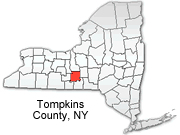Tips for Parents of Teens Who May Be Experiencing Depression
The teenage years are notoriously turbulent. Adolescents are doing more things independently, taking more risks socially, and possibly experimenting with drugs and alcohol. All this can come with emotional costs. So it can be complicated to tell the difference between the typical teen turmoil and a depressed teen. In early adolescence, boys and girls are equally affected by depression. But after puberty, girls are about twice as likely as boys to become depressed, and this ratio persists into adulthood.
The good news is that "a secure, warm, loving relationship with a parent can be a protective factor against depression, especially for girls," says Dr. Gene Beresin, executive director of the Clay Center for Young Healthy Minds at Massachusetts General Hospital. Here are his eight tips for parents whose teens may be depressed.
Observe changes in your kids. Tune in to behavioral clues. A teen may shut down or have a personality change, such as becoming quieter, sadder, or more irritable. Other signs include teens who seem more spaced out and can't seem to focus, are less interested in usual activities, or may be using substances to self-medicate. "If you see changes in multiple areas of a kid's life, that's raising a red flag," Beresin says.
Notice patterns. If you see a major change in your teen's patterns, to the point where your child almost seems like a different person and it cuts across different situations, meaning it's happening at home, at school and with friends, this may point to a problem.
Get outside information. Find out from other people who know your teen - coaches, teachers, friends and parents of friends - whether your teen seems different around them. Teens may reveal more to someone else they trust than to their parents. Also, consider whether a major life stressor - if someone close has died, gotten sick, or is going through a divorce - could be triggering the behavior changes.
Talk with your kids. Have regular conversations with teens and younger children about what they are doing and how they are feeling. Be sure to ask probing questions but avoid grilling teens. Try having these conversations when the two of you are driving in a car, preparing dinner or watching TV. Let teens talk and listen to their responses, and make sure they feel heard and understood.
Open a door. Share an observation you've made with your teen, perhaps by saying "I've noticed that you're not sleeping as well" or "I've noticed that you're not going out with your friends as much." Then offer up, "If you'd like to talk about it…" Don't give up if teens shut you out initially, because it may be difficult for them to open up about their feelings, or they may be embarrassed to share them.
Discuss seeking professional help. If your teen talks about depression, acknowledge their sadness and pain so they know you are taking their feelings seriously. If a teen shuts down, suggest that you understand they may not feel comfortable talking with you, but you would like for them to talk to a health professional because you care. Parents can expect resistance to this idea, Beresin says.
Don't be afraid to ask about suicidal thoughts. "It's very important for parents to bring this topic up; it won't precipitate a suicidal act," Beresin says. If your teen is talking about suicide, hurting themselves, or being better off dead, take it seriously and get help immediately, he says.
Take a stance. If your teen's depression seems severe, or the teen appears to have a serious substance abuse problem or has made a suicide gesture, it's the role of the parent to take a stance, Beresin says. Insist the child see a mental health professional, and make the appointment. While some young people came to his office "kicking and screaming," extremely angry or upset with their parents for seeking help, once they got there, Berensin has found "most kids want to talk when given the opportunity."
Adapted from an article by Live Science @livescience
~ ~
Monthly Messages are brought to you by the Tompkins County Youth Services Department, a proud partner of The Community Coalition for Healthy Youth.
If you have further questions or comments about this message or would like information on how to become involved with the Community Coalition for Healthy Youth, please email ahendrix@tompkins-co.org
Thank you in advance for sharing this monthly message with all of your networks. More detailed versions of this message and all previous messages can be found at http://www.healthyyouth.org/monthly-messages.php.
For more information on-line, go to Links – Tips for Families, Parents and Youth Workers

